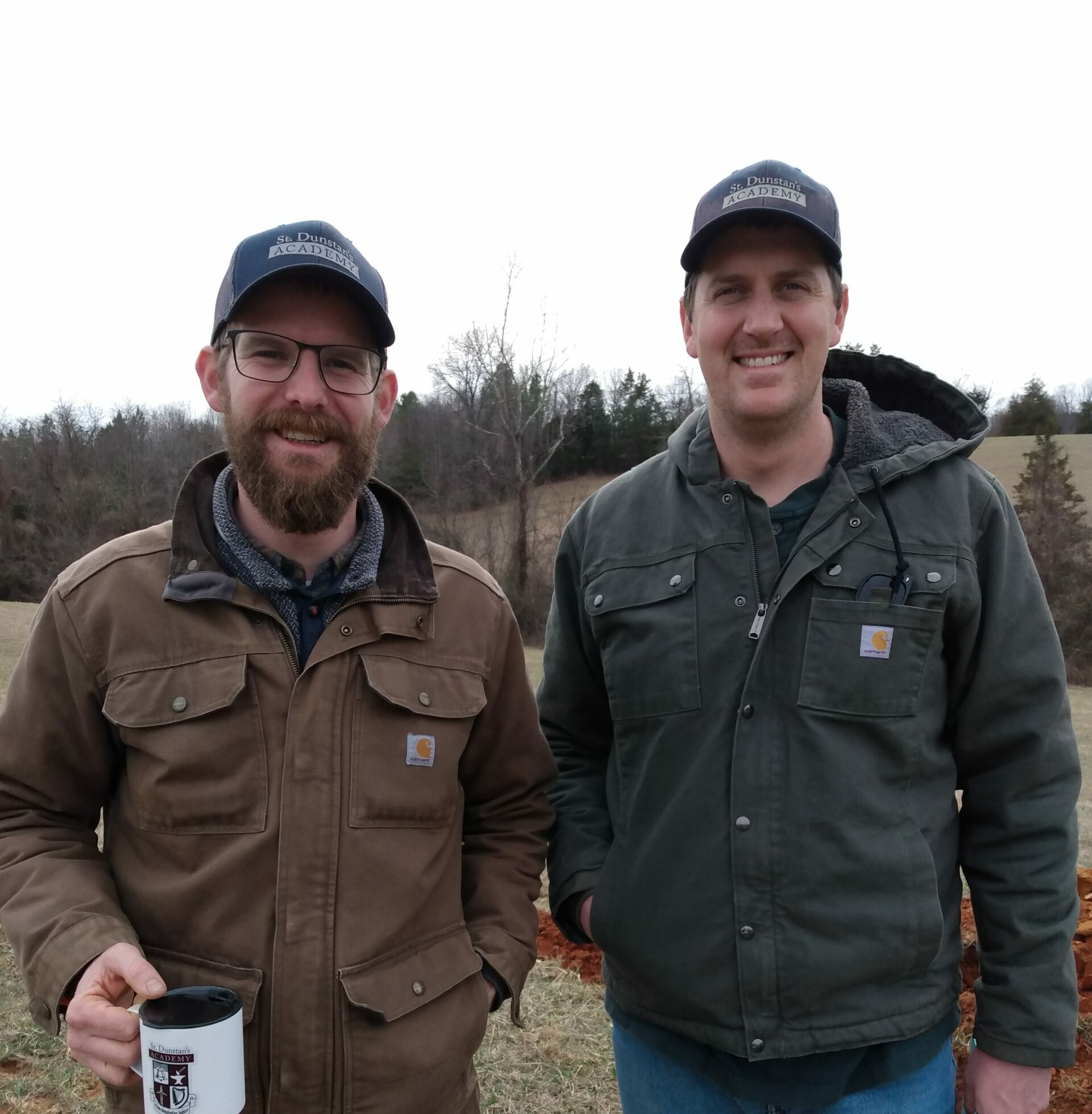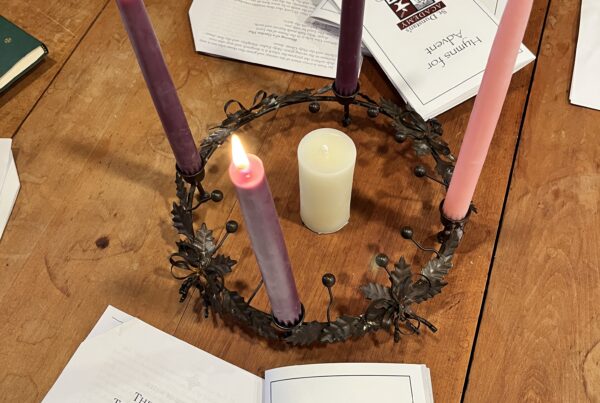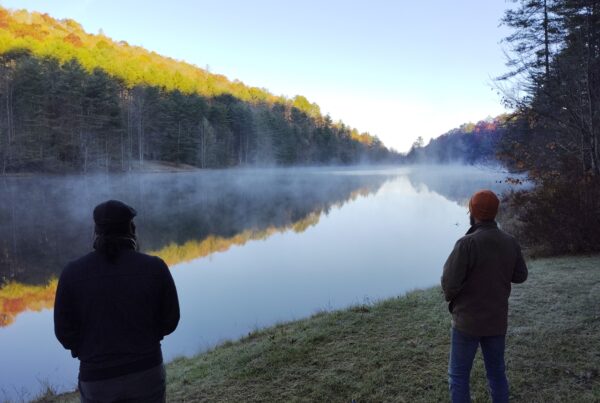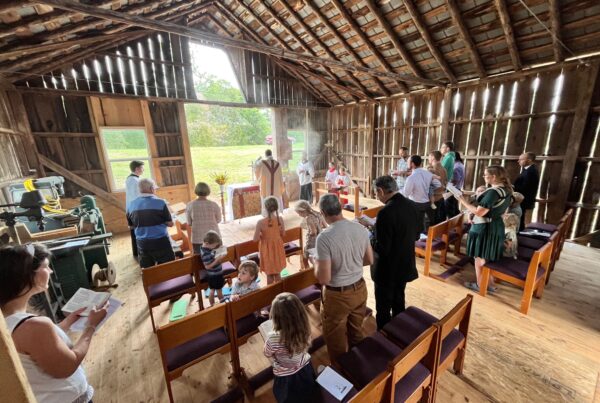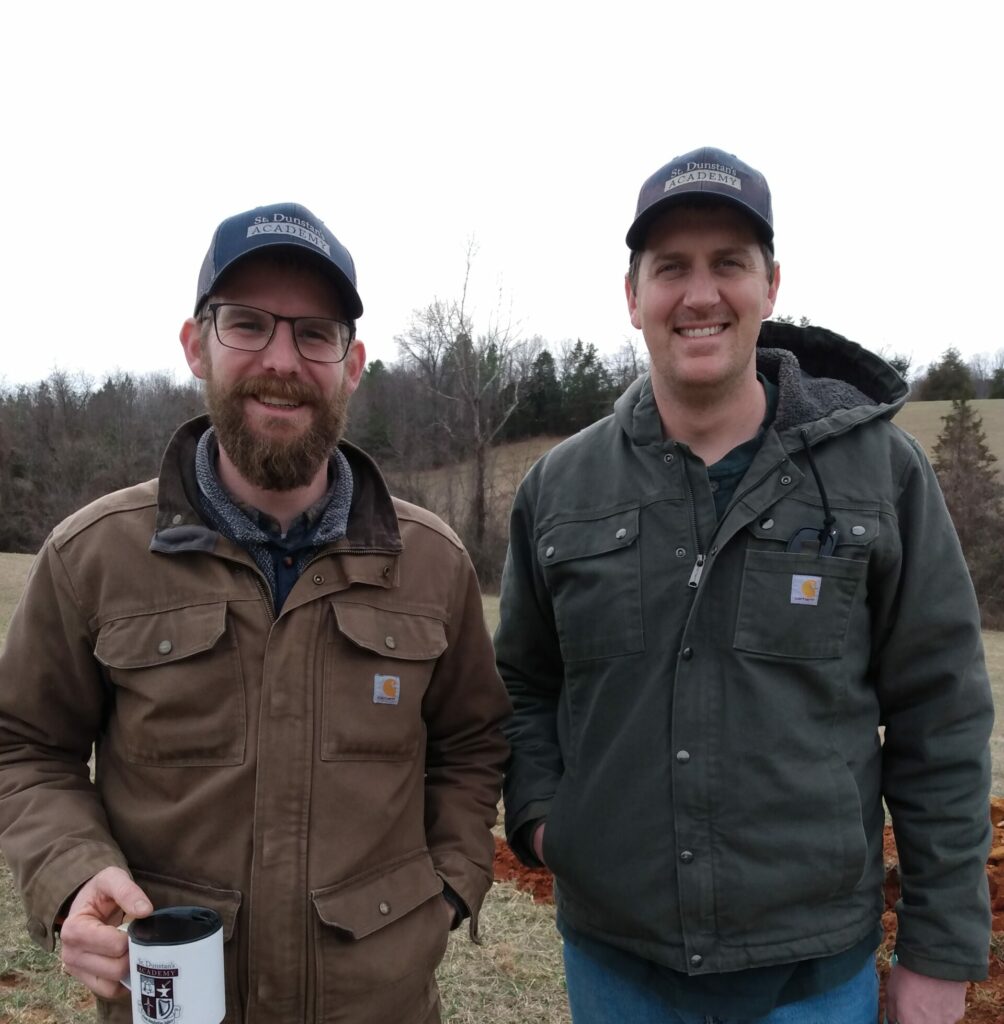
I was asked to write an alumni spotlight for Hillsdale College’s education newsletter, which has me reflecting on what I’ve learned after a year at St. Dunstan’s Academy. My job title here is “Chaplain and Assistant Headmaster,” but in this pre-launch phase that’s more aspirational than actual. What I’m really doing is fundraising, publicity, and campus development — and nothing in my c.v. prepared for me these roles!
Here’s what I wrote as advice for “someone in my career field” for that alumni spotlight:
“For all you other priest/educator/fundraisers out there (I kid), identify your weaknesses and do concrete things to combat them. If you are jealous of your time or money, make a point of giving it away. If you hate confrontation, find a role in which difficult conversations are unavoidable. If you’re addicted to your phone, smash it with a hammer and get a dumb phone. At the risk of sounding like a TedTalk bro, do the things you swear you can’t or will never do. Often that’s just an excuse for laziness or learned helplessness. For me that has meant working in school administration, becoming a fundraiser, learning the building arts, living in Florida (for a time). In all cases, it has made me a better person and, I hope, has led me to essay greater things for the kingdom of heaven than I would, had I lived on into my exculpatory narratives.”
Back in February Dr. Larry Arnn (Hillsdale’s president) told me that when leaders of schools and nonprofits tell him things like, “I know how to run my institution but I’m terrible at fundraising,” he responds, “Then you don’t know how to run your institution.” I take him to mean not only that fundraising is part of the job description but, even more, that the skills and character traits necessary to be a good fundraiser are in fact the same ones necessary to be a good leader of any institution.
To wit:
- Casting a vision worth pursuing;
- managing immediate, intermediate, and long-term institutional needs;
- recognizing, encouraging, and honoring the gifts and indispensability of each contributor (whether staff, donor, or volunteer);
- finding the mean between asking too little and asking too much of contributors;
- never shying away from necessary conversations or confrontations, no matter how scary or difficult they might be;
- being a good friend.
If you can do these things, you can fundraise. If you can’t or won’t do them, you can neither fundraise nor lead effectively.
One thing I should have added to my career advice answer: find good friends, good mentors, and good resources. When it comes to fundraising and publicity, the experienced folks on our Advisory Council have been incredible. When it comes to fundraising and publicity I have especially learned from Ian Faley, Andrew Belz, Samuel Heisman, Fr. Alan Crippen, and Dr. Kyle Williams. Calvin Stockdale at Hillsdale College has also offered excellent advice and wise council. And two podcast have been great help: Kevin Fitzpatrick’s “One Visit Away” and “Just Ask: Rethinking Development” with Bryan Wilburn and Greg Jeffrey.
So thanks to everyone who has fielded questions, edited writing, gently discouraged dumb ideas, and given wise council.


